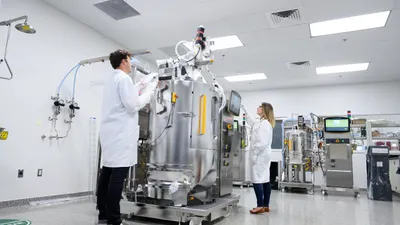UniQure Advances AMT-130 Gene Therapy for Huntington's Disease with FDA Support for Accelerated Approval

UniQure has reached a significant milestone in the development of its investigational gene therapy, AMT-130, targeting Huntington's disease. Following a positive engagement with the FDA, the company is cleared to utilize ongoing Phase I/II study data and natural history external controls as the primary foundation for a Biologics License Application, bypassing the necessity for additional trials[1][2]. The FDA's approval of using the Unified Huntington’s Disease Rating Scale as an intermediate clinical endpoint, alongside neurofilament light chain as supportive evidence, demonstrates a strategic alignment with metrics that have previously expedited ALS treatment approvals[1][2]. AMT-130, designed to mitigate the production of a pathological protein by targeting the mutant huntingtin gene, has shown efficacy in reducing disease progression in preliminary trials, significantly bolstering UniQure's stock value post-announcement[1][2].
References
Explore Further
What specific challenges does Huntington's disease typically present in the development of gene therapies like AMT-130?
How does the use of natural history controls in drug trials provide an advantage in receiving accelerated approval from the FDA?
What is the potential impact of the FDA's agreement on the stock market performance of biotech companies like UniQure?
In what ways could the approval of AMT-130 change the current medical treatments available for Huntington's disease?
How does the production of the mutant huntingtin protein contribute to the progression of Huntington's disease, and how does AMT-130 address this issue?